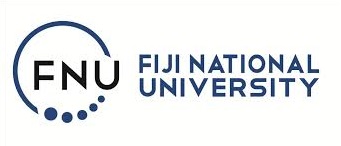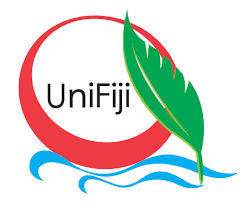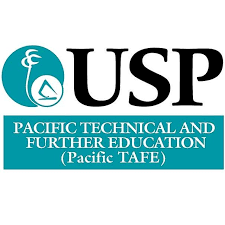You can download programme/course change, scholarship deferral and scholarship extension application forms below:

Pre-departure in Vanuatu
The TSCU will prepare you before you depart Vanuatu and will help you in a number of ways.
- Issue you your Award Letter. This is your Contract which says you are formally a sponsored student and the Vanuatu Government will be responsible for your travel, academic and social welfare while in Fiji and your repatriation back to Vanuatu at the end of year and your final return following your study.
- Assist you complete all necessary documents from your institution.
- Detail about your air & land travel, accommodation and allowances.
Documents you must have with you when you travel
These documents are important which you must have before travel:
- A valid passport with and expiry date 6 months beyond the end date of your study
- Your Offer Letter (from the institution that has granted a place for you to study)
- You Award letter from the Vanuatu Government
Your departure from Port Vila will be facilitated by staff of TSCU. You will be issued your ticket and assisted at the international airport. Should you have any queries regarding your travel you should ensure to consult TSCU staff well before you leave.
The TSCU is responsible to organize your travel to Fiji and return to Vanuatu via the most direct economical route. Weekly direct flights into Nadi from Port Vila are operated by Air Vanuatu, Fiji Airways and Solomon Airlines. This minimizes the need for travel through a second port.
In Fiji
The High Commission is responsible to facilitate your arrival into Nadi or Nausori International Airports.
Arrival in Fiji
On arrival you are expected to go through customs and immigration border control.
At the immigration desk you are expected to have your passport ready to be stamped. You must have the following documents:
- Your Award Letter
- Institution Offer Letter
- Passport
At the customs desk you must have your passenger arrival card to be checked. You will be issued with a passenger arrival card in flight.
You must complete the card thoroughly paying attention to details. Fiji’s Prohibited Imports and Exports Regulations Act of 1986 alludes to certain items that you must not bring into the country or if you do, you are required to declare on arrival.
Airport Transfers
Either the High Commission or airline agent is responsible to:
- organize your airport transfer direct to your institution. In some cases, especially with smaller numbers traveling and depending on arrival time, it may mean a transit before outbound trip.
- Arrange any overnight accommodation (late arrival) in Nadi only before your road or air transfer to your final destination.
Arrival debriefing Details
student association bodies from your institution will provide an arrival briefing to explain the local conditions and also to revisit TSCU’s briefing on your obligations as a Government sponsored student.
General briefing details
The general briefing details will include:
- Orientation
- Accommodation
- Allowances
- Enrollment
- Social and academic welfare
- Important contacts
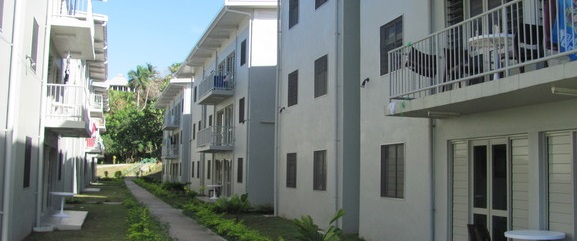
On Campus & Hostel Accommodation
The High Commission will be responsible to reserve on campus halls or hostel accommodation for new students. On-going students must apply in the previous year to be considered for on-campus or hostel accommodation. The TSCU will provide a full list of new students so that accommodation can be organized.
On-going students who wish to live on campus are required to apply for their on-campus before the end of each academic year. Students can do this on-line.
Off campus accommodation
Pressures with on-campus accommodation mean that a greater number of students are living off campus.
Around the Suva area you can find affordable housing for rent. It is expensive for students to flat out alone so students normally group to rent a facility. If you chose to rent out, we encourage you to take note of the following instructions:
- Check that the rental facility is appropriately fitted with study equipment, ie desk, chairs, study lamp.
- In house cupboards for you to store your cloths and other belongings safely
- Check that the house is properly secured ie; fence, grill doors, lockable doors, mosquito screens.
- Check that there are no leaking roofs.
- If no inventory exists, do one up to list all the items you have on entering the premises
- Ensure to have a signed contract between yourself and your landlord and do read through the contract and understand its contents. Ask other students or the High Commission if you are not familiar about the terms and conditions of the contract.
- Discuss any matters relating to damages with your landlord as soon as damages are identified.
Rental Responsibilities
It is your responsibility to make sure that you pay for all accommodation charges including monthly rents, utilities such as water and electricity bills.
You will be billed directly by your landlord or the halls of residence if you live on campus.
Rental Grievances
There is always a tendency that disagreements can surface between you and your landlord. Should disagreements arise, try to solve this in an amicable manner with your landlord through dialogue.
The High Commission is willing to take complaints however it is your responsibility as a tenant and your landlord to ensure your grievances are addressed satisfactorily. In the event that any matter cannot be concluded satisfactorily, the High Commission can assist you further your case with the following agencies dealing with rental facilities. They are:
- Fiji Consumer Commission
- Fiji Consumer Counsel
Depending on which agency your case falls under, the High Commission is able to assist you further your claims.
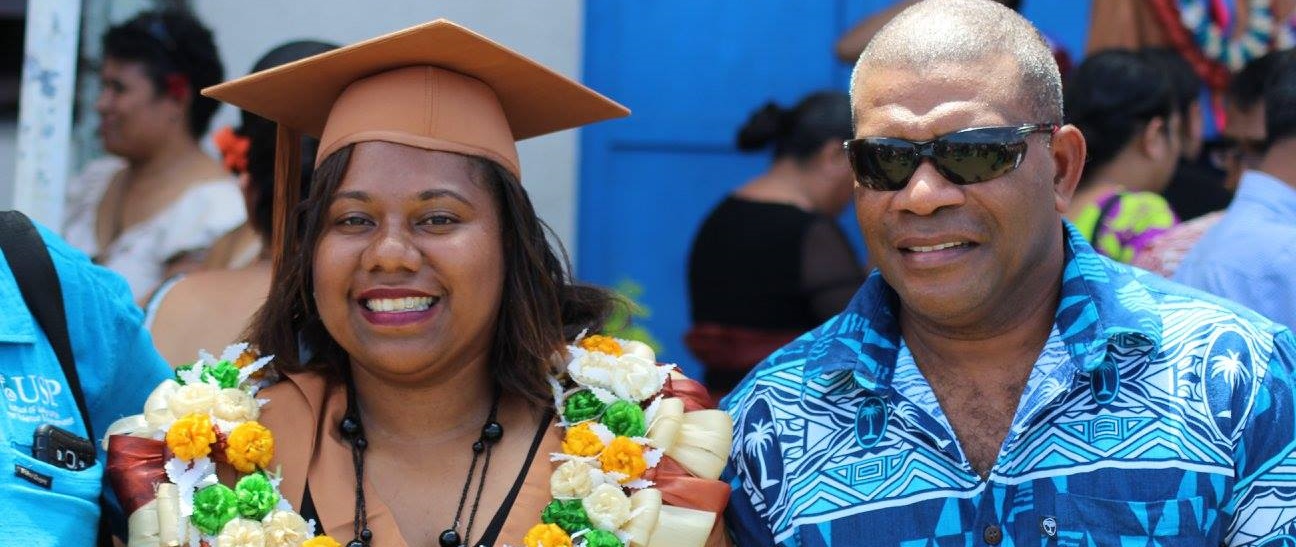
Before leaving Vanuatu and during the course of your study, it is important that you are familiar with the conditions of your awards.
The Scholarships Policy and Procedures Guidelines provides clear guidance on how you can maintain satisfactory academic progress to achieve your studies. The Guidelines cover the following information in detail:
- Continuation Criteria
- Satisfactory Progress
- Procedures for seeking an award variation
- guidelines for a request of an award variation
- guidelines for the consideration of an award extension
- guidelines for the consideration for PROGRAMME/course changes
- guidelines for the consideration of award deferrals
- guidelines for award suspensions
- guidelines for terminations
- Other conditions of award
As stipulated in your award letter, you are expected to complete your studies within the approved time frame. However, it is recognized that in many instances it might not be possible for students to progress satisfactorily therefore will need to apply for a change of programme/course, seek and extension or differ.
You must complete and submit your form within a time frame. Select timeline to view the required times for submission of your form.
Applying for further studies
Upon completion of your first degree, you may wish to apply for post graduate studies. Students currently on private sponsorship in Fiji may also wish to seek government support. You can apply using the on-line application forms in the link www.scholarships.gov.vu.
Applying for a Student Study Permit
Student Permit means a permit granted under Section 9(2)(d) of the Fiji Immigration Act 2003 authorizing a person to study either at a local primary, secondary, tertiary vocational institutions or universities.
Fiji Immigration requires that your residence status must be secured as soon as you arrive. You will be issued a one month on arrival to sort your study permit.
You must complete the following the APPLICATION FOR A PERMIT TO STUDY/RESEARCH and with it attach the following:
- Four passport size photos
- A copy of your Award Letter and Offer Letter
- A copy of your Institution Offer Letter
- A certified copy of your birth certificate
- A copy of your marriage certificate (for married students only)
- A medical certificate
- A police clearance (if you are over 18 years of age)
- A copy of your passport bio-data
Important instructions:
It is important that the immigration form is completed and all documents attached before you depart. Once completed with all attachments it is important to have this in an envelope. The High Commission is responsible to submit the application on your behalf to the Fiji immigration office. The High Commission will also need to retain your passport until your application is approved and stamped.
Note: Failure to have your permit issued within the time given will result in you being classified as a prohibited immigrant. You will be penalized and receive a fine of FJ$180.00. If you are in Fiji, you must explain the reason for your overstay, pay your fine before the penalty imposed on you can be uplifted. If you are overseas, you may only re-enter the Fiji once you have paid the penalty fee and an uplift has been approved by the director for immigration.
To Renew Your Permit to Study/Research
It is important that your study permit must be kept valid for the duration of your study. If your permit will expire for example in December and your completion is in June the following year, you must ensure you apply for an extension. To apply for an extension, you need to supply the following information:
- A police report which must be obtained from the police headquarter in Suva
- A copy of your passport bio-data
- A copy of your study permit
- A copy of your Award Letter
- A copy of your Offer Letter
- A letter from the Vanuatu High Commission
You will need to submit your documents directly to the Fiji Department of Immigration which is located at the following address; Civic Towers, Victoria Parade, Government Buildings, Suva.



